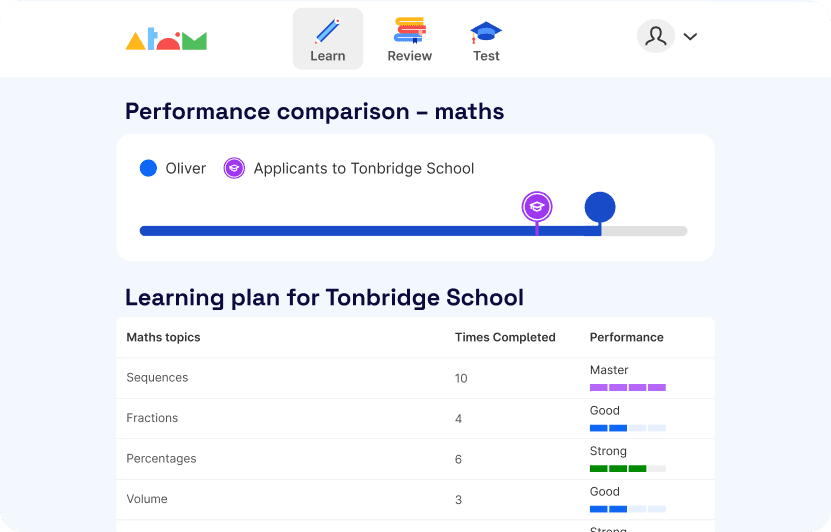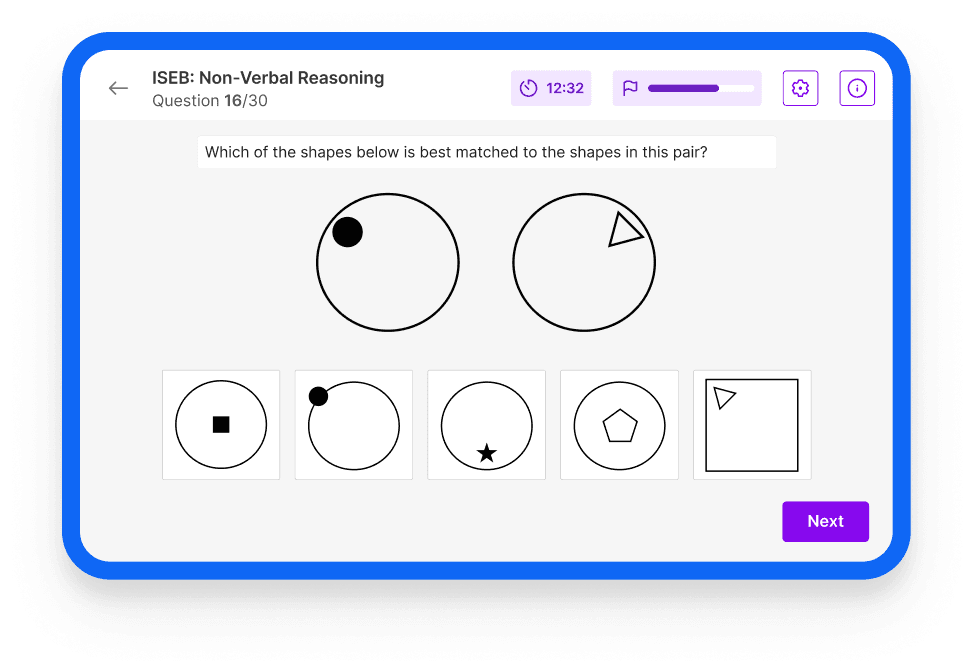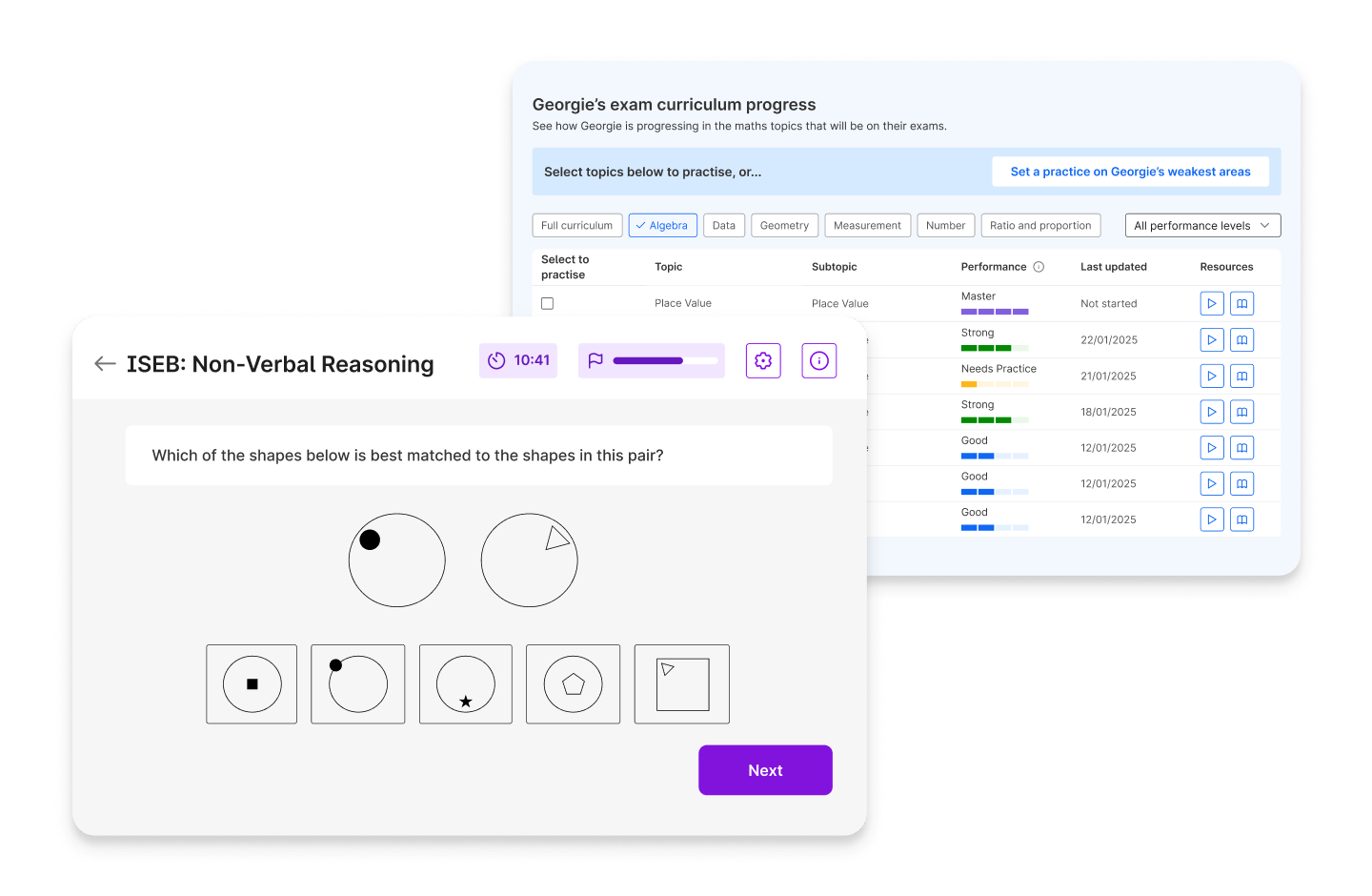Tonbridge School 13+ guide

Atom Learning is partnered with Tonbridge School. You can read more about our partnership here.
Considering Tonbridge School for your child? We’ve collated everything you need to know about 13+ entry. Learn how to apply, what’s on the entrance exam, and how to help your child prepare for success.
Key information for Tonbridge School
- Address: Tonbridge School, High Street, Tonbridge, Kent, TN9 1JP
- Age range and gender: boys aged 13–18
- Type of school: independent day and boarding
- Number of students: 800+
- Admissions contact: [email protected]
- 13+ open days: September–December in Years 5 and 6
- 13+ selection criteria: ISEB Common Pre-Test, assessment and school report
- Financial assistance: means-tested bursaries available to those who have a scholarship
- 13+ scholarships: music, sport, art, drama and DTE (design, technology and engineering)
About Tonbridge School
Tonbridge School is renowned for its distinguished history dating back to 1553. Founded by Sir Andrew Judde, it has evolved into a leading independent boarding school. The school is known for academic excellence, blending tradition with innovation.
Students at Tonbridge achieve outstanding exam results. The school prepares students for prestigious universities including Oxford and Cambridge. There is an emphasis on holistic development through a variety of co-curricular activities including sports, arts, music, and community service. Tonbridge ranks within the top 10 independent schools in the Sunday Times ‘Parent Power’ Guide.
Tonbridge's strong pastoral care ensures every student receives personalised attention and support. It was the first school in the UK to put mindfulness on the curriculum. It also prides itself on its global perspective and emphasis on connections. The student body is diverse and there are many opportunities for cultural exchange and partnerships. This creates a supportive environment summed up by the school’s ethos: ‘Only Connect’.
Dates for your diary
- Registration closes: beginning of September in Year 6
- Entrance exam (ISEB): September–December in Year 6 (Wave 1), January–April in Year 6 (Wave 2)
- Offers of places: January in Year 6 (Wave 1), January–May in Year 6 (Wave 2)
Tonbridge School 13+ entrance exam
All children applying for 13+ entry to Tonbridge School sit the ISEB Common Pre-Test. This is an exam created by the Independent Schools Examination Board which is usually taken in the autumn term of Year 6.
The ISEB Common Pre-Test is taken online and consists of multiple choice questions. It is entirely adaptive, which means the questions become more difficult depending on how your child is performing. The questions span four subjects:
- Maths: questions are based on the Year 5 national curriculum – although children in Year 6 may find this section challenging. The questions range from arithmetic to multi-step problem solving.
- English: questions are split into two sections: reading comprehension, and spelling, punctuation and grammar.
- Verbal reasoning: your child will be tested on their ability to reason and solve problems with written information, such as letters, words, symbols and numbers.
- Non-verbal reasoning: these questions assess your child’s logic, critical thinking and problem-solving skills using figures and diagrams. They will need to show that they can analyse and manipulate 2D and 3D figures.
The ISEB Common Pre-Test takes around 2 and a half hours to complete. Your child can sit the four subjects together or at separate times. If they are taking all four subjects on the same day, they will be allowed a short break between each section.
At Tonbridge, applicants can take the ISEB Common Pre-Test in two 'waves':
- Wave 1: September–December in Year 6
- Wave 2: January–April in Year 6
In addition to the ISEB, applicants are invited to an assessment afternoon at the school. Tonbridge School will also request a confidential reference from your child's current school.
Is your child ready for the ISEB Pre-test?
See where they stand in minutes. Atom’s free ISEB baseline tests give you an instant breakdown of their strengths and gaps. Know exactly what to focus on next and start preparing with direction, not uncertainty.
.png)
Atom’s top tips for applying to Tonbridge School
Tonbridge School is a selective school, and competition for places can be high. Here are our top tips to help your child prepare for the selection process.
Bitesize learning
It’s important to build a good knowledge base before school entrance exams. Your child should have a good understanding of the content they’ve been taught at school before testing their knowledge with practice tests.
Using a ‘little and often’ approach when learning is key – our brains encode new information more effectively when dealing with smaller ‘chunks’ of information. For children aged 10–11, child psychologists recommend regular study sessions of 20–30 minutes.
With Atom Home, you don’t need to worry about creating a study schedule. When you enter your target schools, you’ll get a bespoke learning plan tailored to your schools’ entrance exams. Know exactly what your child needs to do each week to confidently pass.

Read widely
Entrance exams test children’s ability to analyse and interpret written information. Regular reading is a great way to help your child build these skills.
Encourage them to read books from different genres and by a diverse range of authors. Increasing the variety of your child’s reading will help them understand different styles, tones and purposes. Meanwhile, reading a little every day will help widen their vocabulary, sharpen their analytical thinking, and enhance their imagination.
Looking for reading inspiration? Check out our Key Stage 2 reading list.
Hone curiosity
Selective schools are often looking for children who are interested in learning. You can help by supporting your child’s broader learning, their intellectual curiosity, and their passion for developing an understanding of the world.
Talk to your child about the world we live in and inspire an interest in current affairs with age-appropriate journalism. It’s also a good idea to make sure they’re benefitting from a rich variety of experiences, such as visiting libraries, museums and galleries.
Refine exam technique
When your child feels confident with their knowledge of the exam topics, they’ll be ready to put their knowledge to the test.
Mock tests can help your child develop problem-solving skills and refine exam technique. They’re also a great way to consolidate learning, while highlighting any knowledge gaps they might want to tackle before exam day.
When you set Tonbridge School as a target school on Atom Home, your child will get ISEB mock tests as part of their learning plan. Atom’s mock tests mirror the real ISEB – the curriculum, the timings, the controls and even the colours. Know what to expect on exam day.

Celebrate progress
Setting regular, achievable goals and celebrating your child’s progress – no matter how big or small – will help keep their motivation high.
Make sure to encourage a growth mindset. This means celebrating effort, as well as achievement! When your child makes mistakes or struggles to understand a particular topic, help them understand that they’ll improve through practice. Regular praise will help your child improve their resilience when tackling new and challenging topics.
Remove the guesswork from ISEB prep.

Worried about how your child will perform in the ISEB Common Pre-Test? The adaptive format can feel unpredictable, but their preparation doesn’t have to.
Atom adapts to your child’s level as they work. We show you exactly what they need to practise and how they’re progressing.
- Follow personalised weekly exam plans that adjust to your child’s performance and show them what to learn next.
- Practise with replica ISEB mock tests that generate new questions every time, so they build real exam skills.
- Track progress and see how they compare to others preparing for the ISEB Pre-Test.
Start your free trial and watch your child master every ISEB subject.
